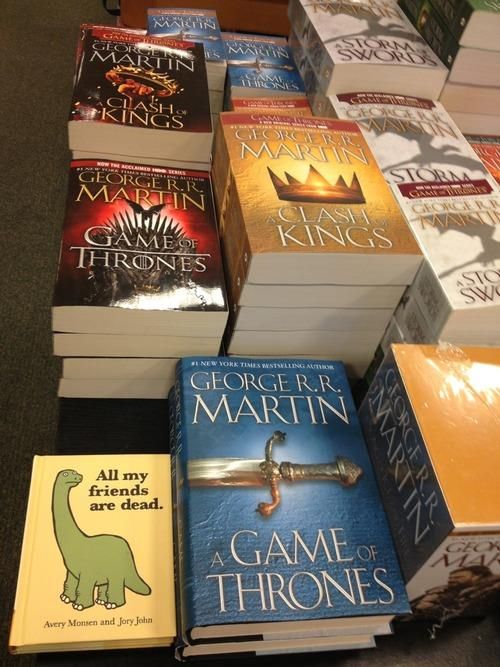In a network of lines that enlace
Brilliant use of language
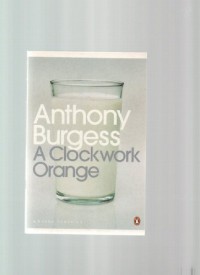
I picked this up on a whim; Waterstones marketing done right. I’ve not seen the film, and I didn’t know much about it before reading. I was a little unsure, as I’m not great with violence (I had to take a break from The Song of Fire and Ice when there was just too much of it), so I was surprised at how much I enjoyed this novella.
Language is a key influence in my liking for this book; the brilliance of the youth slang, and the way it represents the culture of this world is marvellous. It takes time to get used to, but after a few chapters I was completely immersed.
It’s not an easy read. The ‘ultra violence’ that’s committed is brutal, but not glorified. The novella is a discussion about free will, and how much control we can have over a person’s choices. Alex is ultimately forced to make good decisions because bad ones cause him pain; not because he wants to make them. Is this moral? Do the ends justify the means?
It’s definitely one I’m glad I’ve read.
Predictable and dull

This book was disappointing in a variety of ways. Firstly, the so called uniqueness of the images being a focus for the story has been done brilliantly in Sebald’s Austerlitz. I managed to force myself to get over this, and try to enjoy the actual book. To begin with I could, and found it interesting.
Then, it just became predictable. It was blindingly obvious what would happen; with a few plot exceptions. There was nothing clever or to be honest, interesting anymore. It’s a shame, as Riggs is a talented writer with an amazing grasp of language. But frankly, this book isn’t worth reading.
Page 103

Well...this is suspiciously similar to Austerlitz.
Very well written, and a pretty good story.
Shame the whole idea of the images has already been done superbly by Sebald. Both books are even focused on the Second World War.
Perhaps I'm thinking too much about this, but it's bothering me. It's a too similar style, and is therefore making me uncomfortable.
Hmmm...
An intelligent action thriller
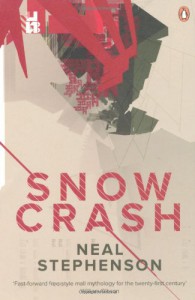
Snow Crash is one of the most intelligent plots I’ve ever come across. It reminded me of Ready Player One, a favourite of mine. It’s set in world where Reality and the Metaverse (virtual reality) are almost interchangeable; where a new drug distributed in the Metaverse reaches through your computer avatar and damages your real self.
It’s a hilarious read at times; pizza delivery is a life-or-death franchise run by the mafia. It is also action packed, which was in my opinion its downfall. I got bored of the many battle and chase scenes littered throughout the novel. However the central plot line surrounding the creation of language, religion and human society was fantastic. The novel is worth reading for that alone. The characters are also a strong point. Y.T is my favourite; however all of them are wonderful in their own rights.
Despite my dislike of the action sequences, this novel was a good read. I recommend it.
Honest and beautiful
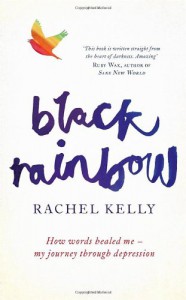
I’ve read a lot about depression and mental illness from a first person point of view; but Rachel’s memoir is unique. It’s both a diary and a guide; it tells you her story but with added suggestions of what you can do to help in times of difficulty.
Rachel has a life many of us would dream of: being a journalist with The Times, living in a lovely area of London with her well connected husband and two young children. She studied at Oxford, married her teenage sweetheart and has a wide circle of friends and a close family. Then one night, it all falls apart. Within three days of having a sleepless and difficult night, she becomes bed-ridden and crippled by depression.
Her work shows exactly what mental illness is; it’s not only reserved for those who suffer intense trauma and sadness in their lives. It can hit anyone, and we still don’t know why. Rachel is brutally honest in her writing. She tells of her exact feelings in her life; how she would rather die than carry on like this, her numbness towards her children and her questioning of her doctor’s suggestions. I appreciate how stark the writing is, and how quickly you can grasp Rachel’s experience.
The memoir is broken up by poetry. Rachel has always felt an affinity towards poetry, and it is one of the tools she uses in her recovery. While I’m not the greatest poetry fan, this added another layer to the novel. Although I must admit I did at times skip through some of them.
At times I did feel as if this would have more impact for someone struggling with depression; however I still gained so much from reading. I would recommend anyone to take a look, whether or not you have any first-hand experience. You will learn so much from Rachel’s words.
Captivating
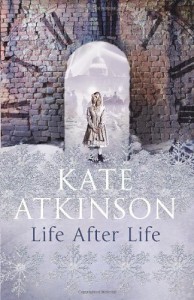
Ursula is born on a snowy night in 1910. Or she should be; sometimes it doesn’t quite work out that way. Once, the doctor didn’t make it in time, and Ursula died in 1910. Another time, she drowns five years later while on holiday and once she takes her own life in Nazi Germany with her daughter.
Life after Life is a story of the twists and turns our lives take; the possibilities that arise when we make one decision over another. Action or inaction changes Ursula’s future. Atkinson has brilliantly created a plot where over time, you can see where the turning points are. Sometimes they are incidental, and other times they are obvious. Yet together, they carve out Ursula’s future, and reveal the person she will become, and what will ultimately be her fate.
In addition to this, as the lives continue, Ursula becomes aware of her past lives existence. One of the crucial turning points is the maid catching influenza. Ursula dies of influenza many times, and as this keeps occurring, she starts to know something must be done, her sense becoming keener until she pushes her maid down the stairs to prevent her from leaving the house.
Some lives are cut short; others are heartbreakingly tragic and full of despair, while others are rich and full of the joys and sadness we all experience. She experiences two wars, and sometimes lives through both. Some lives are repeated until she makes the correct choice while others are lived once and that is enough.
This was a fascinating and well written novel that I enjoyed completely. I heartily recommend it.
23 out of 344 pages

"Privately I thought Dr Ross must have referred us to the wrong specialist. Perhaps I should be seeing a cardiologist or neurologist. I wasn't feeling sad, just experiencing painful physical symptoms. The doctor must be wrong."
"All in all (I had) something of a blessed life, not the sort of thing that would suggest depression."
I love the brutal honesty of this book. It's interesting to see Rachel's thought process when hearing the suspected diagnosis of depression, and her belief of what a depressed person should be.
So far, brilliant reading.
April Roundup
So, my aim of reading 100 books this year is starting to slip further and further away. I managed 5 this month; two brilliant pieces, two average and one I couldn’t finish. A mixed month to be sure. The highlight has to be The Blade Itself, with the second in the series high on my to read list.
Hopefully May will prove a better month for reading. I’ve decided it has to be, seeing as I’ll be turning 25 during it (hello mid-twenties, where did you come from?). Already I’ve started Life after Life, and have been hooked from page one. I’m keeping my fingers crossed this is a good omen from the rest of the month.
As ever, if anyone has any recommendations, feel free to send them over!
The magic of dreams
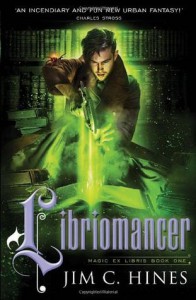
I really enjoyed this book. It reminded me slightly of Jasper Fforde’s The Well of Lost Plots, although not reaching those heights of brilliance (and for me, I doubt anything ever will). Libromancy is the magic I always wished I had; and if I’d read this as a child it would have been the stuff of dreams. I enjoyed the idea that fictional creatures appeared from literature; that the many species of vampire came from the cult fiction novels we know so well.
The pace did slow through the middle, which was a shame as the content was wonderful. The characters were also interesting, and the historical references added to the impressive plot. I did at times feel as though the novel was trying a little too hard to be ‘different’ in terms of the characters and personalities. While it was refreshing to see an exploration of views of sexuality, at times I felt I was being bashed around the head with it. However, as I appreciate the sentiment, I can live with it.
Although I enjoyed it, I’m not desperate for the next in the series. I’m intrigued to see where it will go, but not hanging on to the edge of my seat in anticipation.
All about the characters

There’s nothing tremendously original about this book. It’s a fantasy novel, set in a world of old magic, with a past that no one is truly sure of. There’s a war coming, a weak King and frightening creatures of unknown origin.
While the plot is conventional, it’s the characters that make this novel brilliant. The hero is a destiny is a self-centred coward. The war hero was tortured horrifically; and is now a torturer himself with no trace of the man before left. The wizard who is to lead them to the fight is untrustworthy, not all powerful and is somewhat of a rebel.
It’s character driven, well-paced and a good read. I will definitely be picking up the next one.
Strong main character, good plot but disappointing ending
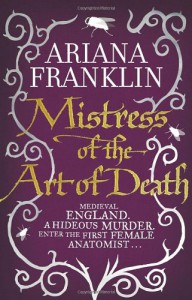
This was my second historical novel, and one again I picked on recommendation. Once again, I was impressed. The story centers on Adelia, a ‘doctor of death’ on a mission from the King of Sicily to uncover a murderer in Cambridge.
The idea of the novel is brilliant; Adelia is the ultimate outsider, being a foreigner, woman and pathologist who becomes the only person able to catch the killer. The way the author writes her methods of working, and the emotions she experiences are fantastic; truly drawing you into the time and her role within it.
The ending was somewhat of a let-down. The novel descended into a romance, which would have worked better if it had been developed into the plot slowly. It all seemed to happen at once, leaving it with the cliché ‘women who couldn’t love who finds a man and marries’ ending. This manages to undo some of the strong, female character building that made the novel so brilliant. However, the majority of the work is good enough that despite the clumsy and frustrating ending, it was worth the read. I am not sure though if I will be reading anymore in the series.
Slow
March roundup
Quite late in getting this one up; it’s been a busy few weeks!
March has been an interesting month in terms of reading; it’s had its up and downs, with two novels I didn’t finish, and two disappointing/mediocre pieces. The stars of the month are most certainly The Man in the High Castle; a brilliant piece of dystopian writing, and Company of Liars; a fantastic historical novel which has kindled an interest in the genre for me. I’ll definitely be reading (and reviewing!) more historical fiction during April.
I’ve got holiday coming up in the next few weeks, so will be hoping to get a lot of reading done during that time. Hopefully the number of great books will be increased during this month too!
As ever, if anyone has any recommendations, please feel free to let me know!
Not the plot it could have been

This is another book I read due to the film trailer. I was also recommended it by someone who said I would enjoy it due its science fiction nature; but insisted it wasn’t a science fiction novel.
I would disagree on this point, but do understand why some would say that. It’s a well written novel, focusing on the emotion of characters, and the nature of ‘humanity.’ What makes a life form worthy of respect? And how do we decide what life forms have consciousness, and how much credit do we give their way of life?
The plot is centred around Isserly, an alien life form who has been altered to look like a human woman. She spends her days driving across Scotland looking for muscular male hitchhikers, whom she drugs, takes back to the farm and are eventually slaughtered for their meat. Isserly’s home appears to be a society in chaos, and now due to the surgery she can now never return to.
The novel is an introspective work, which is interesting and well done in itself; however the plot doesn’t lend itself to that. The back story was far too interesting to leave half mentioned. I wanted to know what Isserly’s home world was like, and how they had ever stumbled upon earth in the first place. How their society worked, what the Estates were, and why human flesh was such a delicacy. These questions are never answered, and it bothered me.
The novel discusses how we decide whether a life form has consciousness, and how much regard we have for that if they are to be eventually eaten. It also calls into question the manner of killing for food; what is merciful and what is cruel. This worked with the storyline, but was done in such an unsubtle manner that it lost most of its impact on me. It could have been written far better without being so starkly and consistently hammered into the reader.
It is well written, but somewhat disappointing.
 1
1





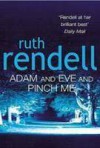

 1
1




